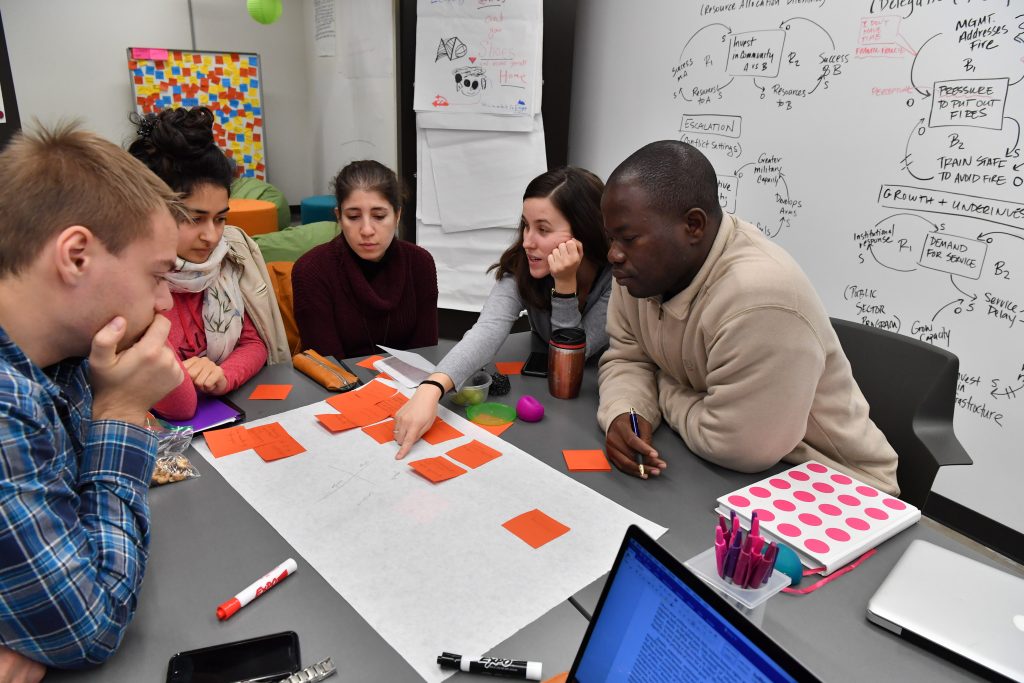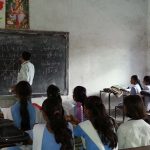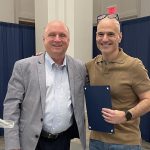The Integration Lab at Notre Dame’s Keough School of Global Affairs is sending teams of master of global affairs students to 13 countries this summer to research and help address a range of pressing global challenges.
By partnering with high-impact global organizations, the Integration Lab (i-Lab) enables student teams to co-design international research projects with seasoned professionals. Each project aims to create innovative solutions to complex issues related to migration, climate change, educational inequality, or access to health care.
The students’ international travel comes at the conclusion of their first year of intensive coursework in the Master of Global Affairs program.
Global partner representatives traveled to Notre Dame during the spring semester to engage with student teams and advance project strategies.
“The opportunity for the i-Lab teams to meet in person with a representative from their organization before traveling to the field was invaluable,” said Tracy Kijewski-Correa, co-director of the i-Lab.
The partner visit also generated enthusiasm among master’s students, said i-Lab co-director Steve Reifenberg.
“There are few graduate programs we know that provide the opportunity to meet with their partners in this extended fashion before a field placement,” Reifenberg said. “It’s well worth the investment.”
Kwame Owino, chief executive officer at the Institute for Economic Affairs, a policy think tank in Nairobi, Kenya, was among the global partners who traveled to Notre Dame.
“My first impression was that we’ll be working with a group that’s very diverse, both in terms of countries and professional backgrounds,” Owino said. “My visit has confirmed that the Keough School is deliberate about understanding global affairs from a multidisciplinary perspective. The students ask interesting questions and are able to draw from many disciplines in sharing their ideas.”
After returning to Notre Dame to analyze and their findings during their second year of study, students present final recommendations to their organizational partner. Students will be sharing their experiences through a blog.
Locations, projects, and partner organizations include:
Bangladesh
Project: Reduce the vulnerability of women to climate change by enhancing the effectiveness of translating research into policy
Partner: Bangladesh Centre for Advanced Studies
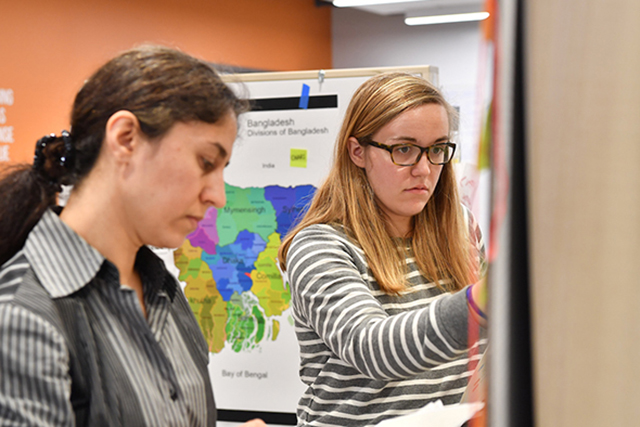
Chile
Project: Create opportunities for teachers to enhance school performance, build community, and foster innovation and learning
Partner: Enseña Chile
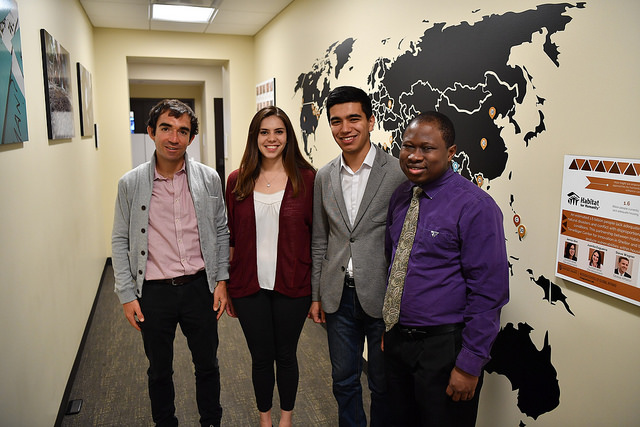
Ethiopia, Sierra Leone, Tanzania
Project: Collaborate with national ministries of health to catalyze and mobilize worldwide improved access to quality surgical care
Partner: Program in Global Surgery and Social Change – Harvard Medical School
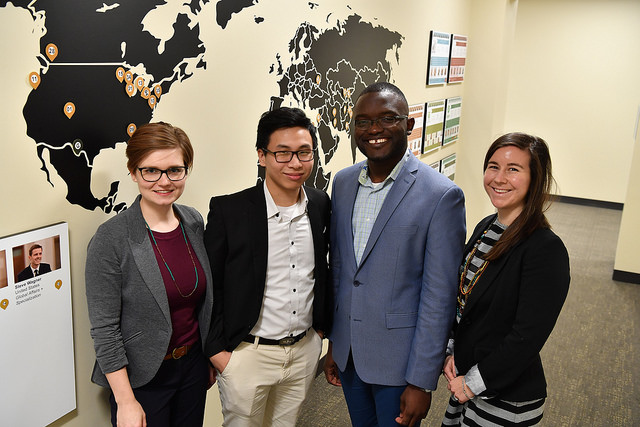
Ghana, India, Malawi
Project: Adapt global supply chains to accelerate transformation toward a more sustainable, equitable food system
Partner: Oxfam America – Behind the Brands
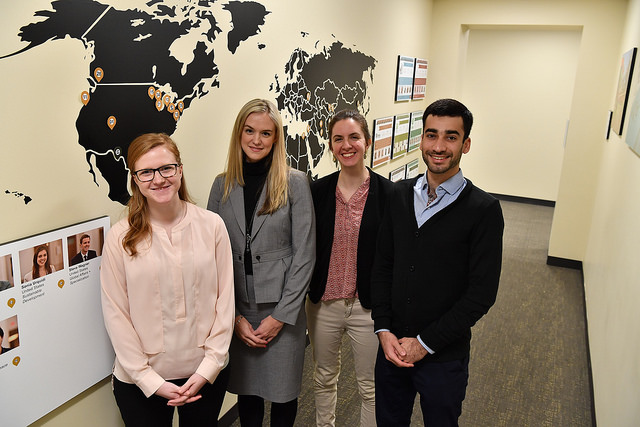
Kenya
Project: Develop scenarios for the future of Kenya’s devolution — transfering power to local levels — that promote democratic participation, equitable distribution of resources, and peaceful conflict resolution
Partner: Institute for Economic Affairs
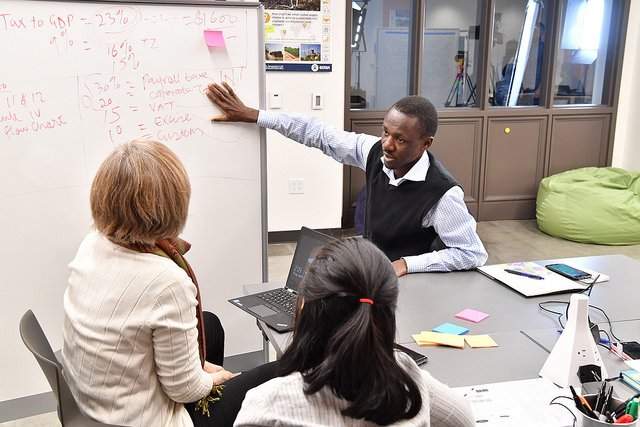
U.S.-Mexico border, Greece, Germany
Project: Explore and document best practices to respect the human rights of migrants as they navigate complex immigration enforcement systems
Partner: United States Conference of Catholic Bishops – Migration and Refugee Services
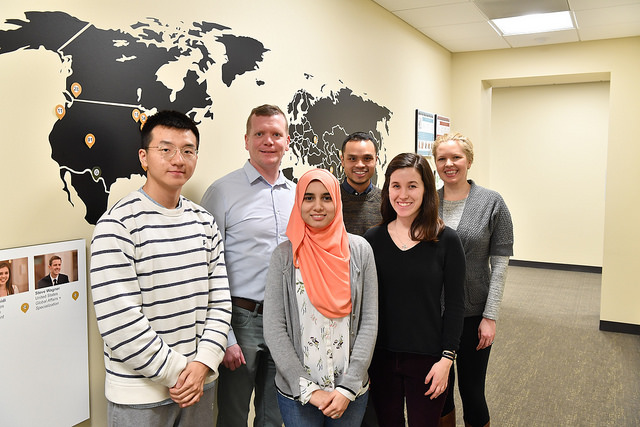
Philippines
Project: Enhance the resilience of local housing markets essential to delivering safe and dignified shelter
Partner: Habitat for Humanity International – Terwilliger Center for Innovation in Shelter
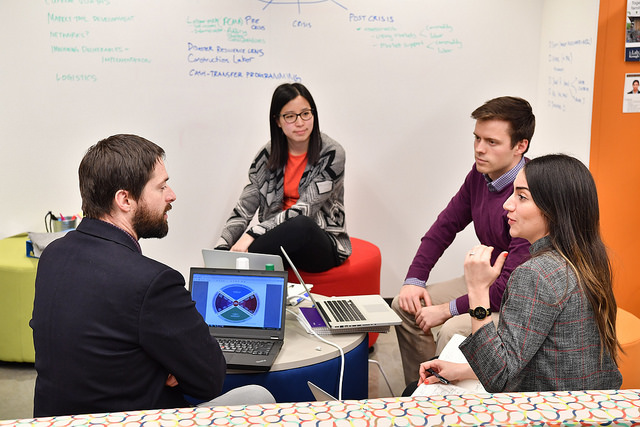
In addition to students participating in the i-Lab, other master of global affairs students who have chosen the program’s international peace studies concentration are participating in individual internships with peace and justice-oriented organizations in Colombia, Kenya, and U.S. cities including Baltimore and Washington, D.C.
The Keough School of Global Affairs welcomed its inaugural master global affairs class — 38 students from 22 countries — in August 2017. Founded in 2014, the Keough School is Notre Dame’s first new school in nearly a century.
Contact: Tracy Kijewski-Correa or Steve Reifenberg
